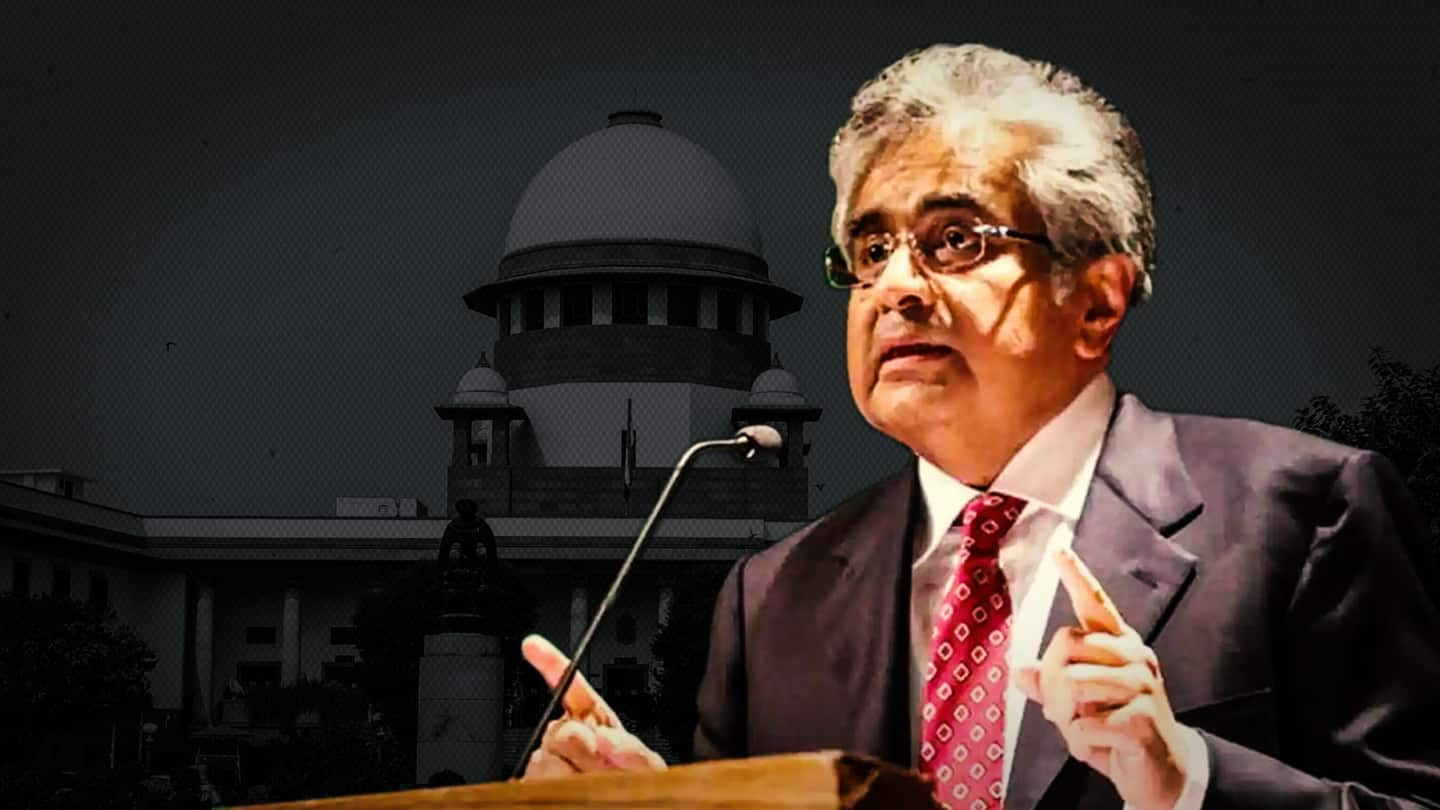"If sanction against is made, let it not be Re. 1 so people don't click smiling photos": Harish Salve in plea seeking contempt against parties failing to publicise criminal antecedents

Supreme Court today reserved orders in contempt petitions over February 13, 2020 order which called political parties, electoral candidates to disclose criminal antecedents, through vide publication.
A Division Bench of Justice RF Nariman and Justice BR Gavai, while responding to the opening submissions of Senior Advocate Mr. PV Surendranath, said,
“We don’t buy this, Sorry! Our orders have to be followed.”
Submissions were made by Senior Advocate(s) Mr. Vikas Singh, Mr. Dinesh Dwivedi, Mr. Kapil Sibal, Mr. K Vishwanathan and Mr. Harish Salve.
Petitioners stated that the guidelines issued in the matter were not adhered to during the recent Bihar Elections.
Counsel for NCP tendered unconditional apology.
Senior Advocate Vikas Singh, appearing for the Election Commission of India, informed the Court that NCP fielded 26 candidates, while CPI (M) fielded 4 candidates with criminal antecedents.
He added that RJD was the biggest defaulter with 103 candidates having criminal antecedents.
“In Spite of bringing out criminal antecedents in the public domain, criminalization of politics has gone up,” submitted Vikas Singh.
Senior Advocate Dinesh Dwivedi defended BSP stating that the party expelled a candidate upon receiving information of him having a criminal background.
Kapil Sibal, Learned Senior Counsel for INC submitted that the party had “substantially complied” with the Courts order.
Amicus, KV Vishwanathan submitted, “What the Court has asked is not extraordinary. It is not a huge task to file forms and publish the same. Public has the right to know.” He suggested for a monetary penalty and a public apology, as a punishment for first breach, on Court asking a suitable action for non-compliance.
"Let them face the consequences and file election without a symbol. Let it act as a deterrent. My respectful submission is to stick to Section 16 A,” added Vishwanathan on punishment.
Senior Counsel, Harish Salve, while making submissions on punishment suggested,
“If sanction is made, let it not be Re 1 so people don't have photos taken with Re 1 handed over and a smile on their face”
In Public Interest Foundation and Ors. v. Union of India, (2019) 3 SCC, the Top Court taking cognizance over increased criminalisation in politics, issued the following directions:
- Each contesting candidate shall fill up the form as provided by the Election Commission and the form must contain all the particulars as required therein.
- Pending criminal cases against the candidate shall be mentioned in bold.
- It shall be mandatory for the candidate to inform the party on whose ticket he/she is contesting, about the criminal cases pending against him/her.
- Political parties shall be obligated to put up on its website the aforesaid information related to criminal antecedents on the contesting candidates.
- The candidate as well as the political party shall issue a declaration in the widely circulated newspapers, about the antecedents of the candidate and also give wide publicity in the electronic media; “When we say wide publicity, we mean that the same shall be done at least thrice after filing of the nomination papers,” Court had specified.
In order dated February 13, 2020 against which the Court was hearing the given contempt petitions, A Division Bench presided by Justice RF Nariman took note of non-compliance of the aforementioned directions, issuing a further list of directions calling political parties to justify their selection of such candidate over other favourable options.
Directions were also issued to the Election Commission to place before the Top court if compliance report by each political party was not filed.
Case Title: Brajesh Singh v. Sunil Arora | CONTMEPT PETITION 656 of 2020
[Picture credits: news bytes app]
